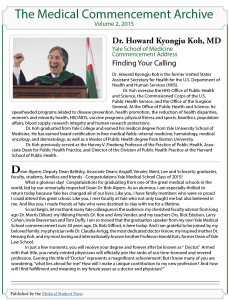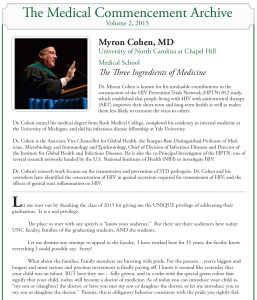In my life, I haven’t had many heroes. Yes, I have been fascinated with some athletes, scientists, artists, and people around me, but I cannot say that I have had many true role models. In terms of science and medicine, one soul in particular stands out – Oliver Sacks.
In my introductory histology & embryology course, a professor mentioned a funny story during a rather uneventful lecture concerning ocular histology. The story told of an interesting “optical illusion”, and the lecture suddenly became much more engaging. He briefly mentioned that the clinical tale presented was described by Sacks in “The Man Who Mistook His Wife for a Hat”[1]. I often leave many off-side notes, and in this instance I scribbled: do check this guy out. While revising my histology notes for the exam, I spotted this side-note in my “trademark” hieroglyphic handwriting and decided to follow up on it. With that, a new influence in my life began.
Most articles will state that Sacks was a British neurologist, physician, scientist, and prolific author. Although he was born in London, he spent most of his life in New York City. Sacks was a meticulous examiner and analyst of neurological disorders, and he devoted his life to patients who suffered from these debilitating conditions. Many of his works became classics and best-sellers in the arena of popular medicine.
Sacks’ book “Awakenings” was used as a scenario for a major Hollywood motion picture [2] . In this true story, Sacks used a new experimental drug, L-DOPA, to treat patients in a state of total paralysis due to “encephalitis lethargica”. The treatment looked promising, as patients seemed to be resurrected and displayed dramatic improvements over their original condition. Unfortunately, the patients eventually regressed, once again falling into despair; once again drifting through the abyss of mere existence, which is what they had been enduring for years before the L-DOPA treatment briefly brought them out of it (the infamous “on-off” pharmacological feature of L-DOPA/Levodopa [3]). This was only one of many adventures that Oliver Sacks embarked upon and described in his novels. He was an intelligent, witty, compassionate, and truly unique writer and clinician who knew how to transpose the emotions, atmosphere, and feelings he encountered during his medical career.
In medical education, we explore different avenues – from basic to clinical sciences, bench to applied medicine, bedside to operating room, small rural ambulances to comprehensive medical centers. We try to reach a correct diagnosis. We try to adjust and find a sweet spot in our therapeutic modalities. We do our best to cut out what is sick and preserve what is still functional. Likewise, we are all attracted to different things. My “thing” is the nervous system and it has been for quite some time. If I was ever in doubt about such a choice, people like Sacks were there to remind me of my passion. Sacks’ stories of neurology and intricate brain puzzles consumed my attention on a daily basis. A few of his books, in particular, made a profound impression on me.
In “Musicophilia”, Sacks writes about the relationship of music and neurological disorders [4]. I was impressed when I learned how different clinical neurologic entities like stroke, cerebral hemorrhage, or head trauma can modify the processing of the sound and even alter someone’s musical inclinations. Likewise, in his book “Hallucinations” he talks extensively about how hallucinations can be generated as a consequence of trauma, drugs, or other physiological alterations [5]. Reading through Sacks’ books, I am continuously re-fascinated by his scholarly capacities alongside his humble and gentle nature. If the equation of human ego equals 1/knowledge, then Sacks had a miniscule, irrelevant amount of ego within himself. I rarely encounter such a trait these days, especially on the wards in daily clinical routines.
The last day of the August was humid and I had just returned home from a beautifully refreshing swim. I was soon struck with the news that Sacks had passed away. I was overwhelmed by the feeling of sadness. The world lost an outstanding individual, a soul that will be dearly missed by many. A few months earlier, in his New York Times column, Sacks wrote that he was diagnosed with metastases originating from his ocular melanoma. In this farewell piece, Sacks sensed his end was near and reflected on his life, which was well lived by any standard [6]. He announced that his final work, an autobiographical sketch of his life entitled “On the Move: A Life”, would soon become available [7]. His life was one of compassion and dedication; he was a source of warmth and kindness for those who were in need. He genuinely understood human suffering and worked to alleviate it to the best of his ability. Although I lived in New York City during my college days, I did not have the privilege of meeting Sacks. Regardless, I can find some consolation in the fact that he only departed physically – his writings, works, and grand opus will continue to inspire generations of minds to come. Goodbye, dear Dr. Oliver Sacks and thank you!
References
- Sacks O. The Man Who Mistook His Wife For A Hat: And Other Clinical Tales: Odyssey Editions; 2010.
- Sacks O. Awakenings: Knopf Doubleday Publishing Group; 2013.
- Lloyd K, Davidson L, Hornykiewicz O. The neurochemistry of Parkinson’s disease: effect of L-dopa therapy. Journal of Pharmacology and Experimental Therapeutics. 1975;195(3):453-64.
- Sacks O. Musicophilia: Knopf Doubleday Publishing Group; 2008.
- Sacks O. Hallucinations: Pan Macmillan; 2012.
- Sacks O. My Own Life New York, NY: The New York Times; 2015 [cited 2015 02/19/2015]. Available from: http://www.nytimes.com/2015/02/19/opinion/oliver-sacks-on-learning-he-has-terminal-cancer.html.
- Sacks O. On the Move: A Life: Knopf Doubleday Publishing Group; 2015.
oliver_sacks by Mars Hill Church Seattle



 Dr. Koh oversaw the HHS Office of Public Health and Science, the Commissioned Corps of the U.S. Public Health Service, and the Office of the Surgeon General. At the Office of Public Health and Science, he spearheaded programs related to disease prevention, health promotion, the reduction of health disparities, women’s and minority health, HIV/AIDS, vaccine programs, physical fitness and sports, bioethics, population affairs, blood supply, research integrity and human research protections.
Dr. Koh oversaw the HHS Office of Public Health and Science, the Commissioned Corps of the U.S. Public Health Service, and the Office of the Surgeon General. At the Office of Public Health and Science, he spearheaded programs related to disease prevention, health promotion, the reduction of health disparities, women’s and minority health, HIV/AIDS, vaccine programs, physical fitness and sports, bioethics, population affairs, blood supply, research integrity and human research protections. 

 Dr. Myron Cohen is known for his invaluable contributions to the construction of the HIV Prevention Trials Network 052, which established that treating an HIV patient with antivirals makes them less contagious to their sexual partners.
Dr. Myron Cohen is known for his invaluable contributions to the construction of the HIV Prevention Trials Network 052, which established that treating an HIV patient with antivirals makes them less contagious to their sexual partners.